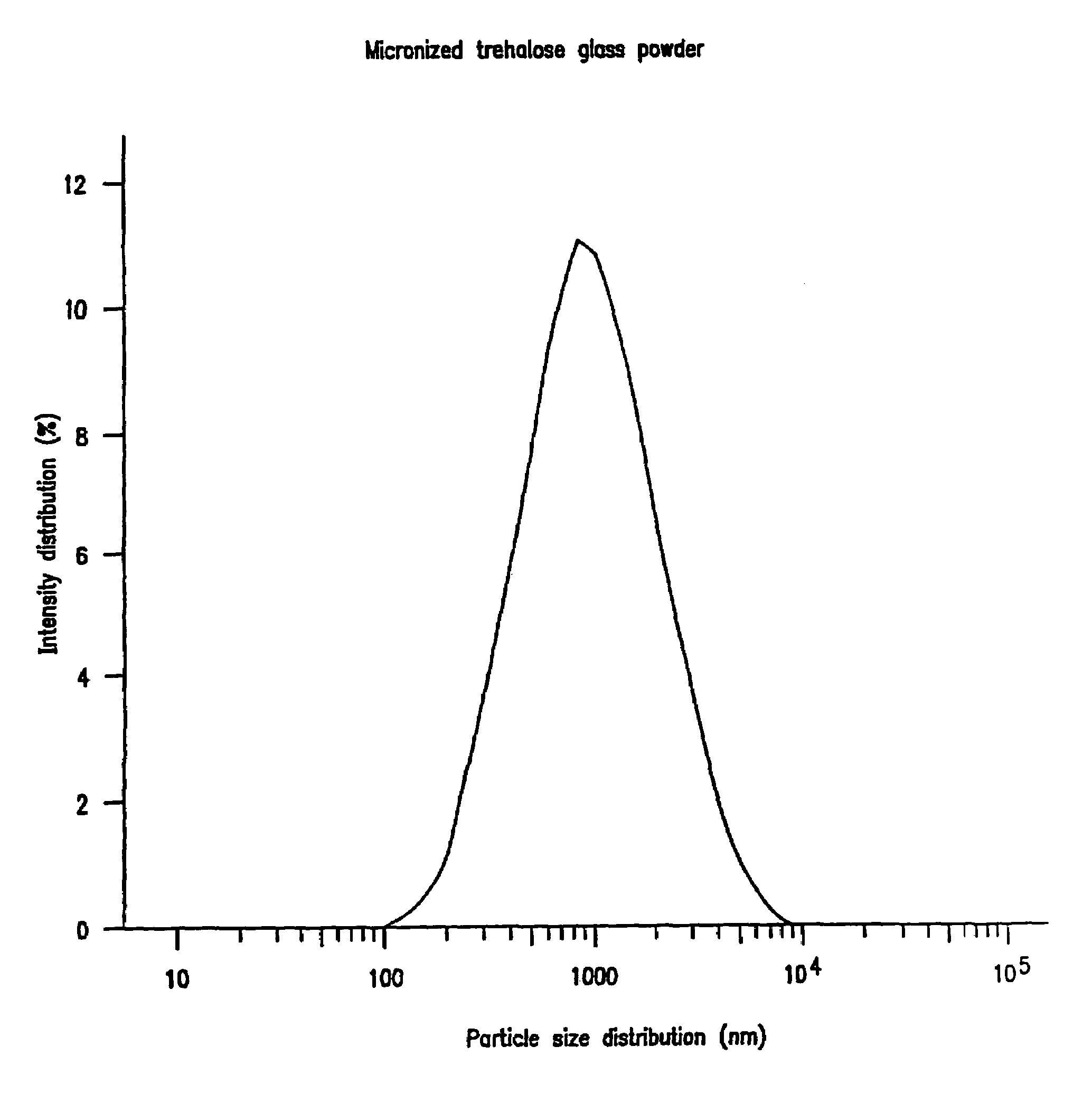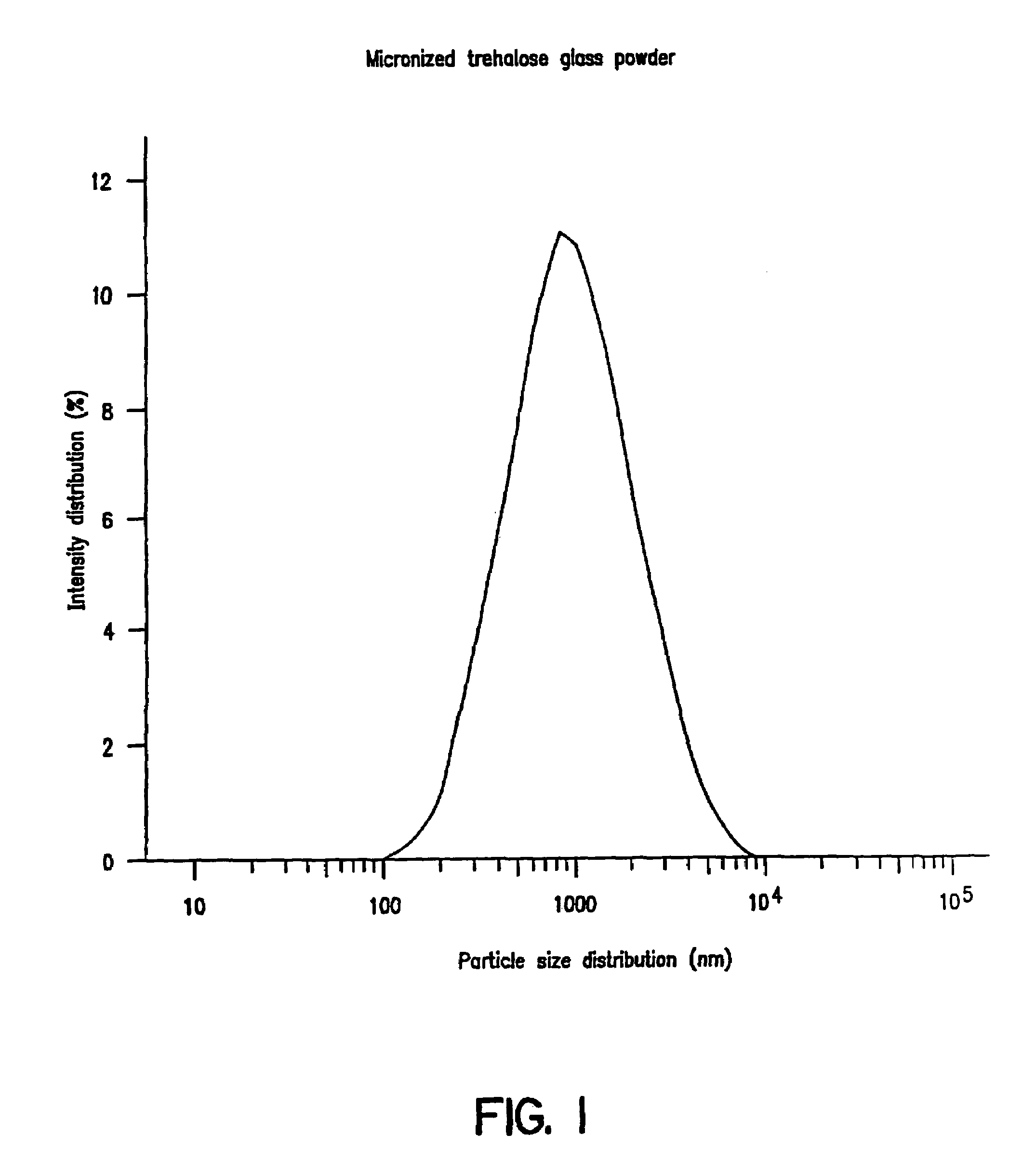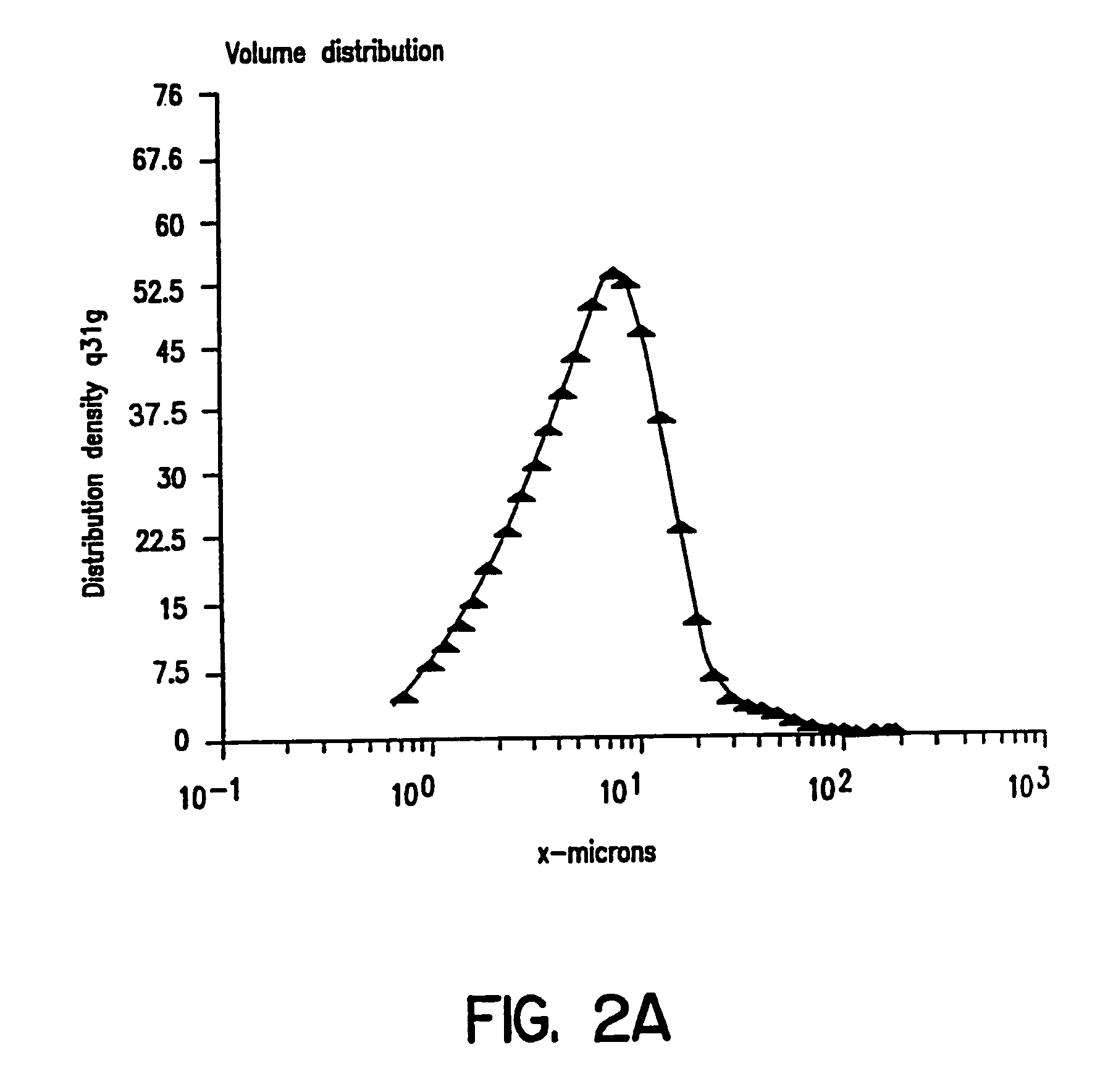Solid dose delivery vehicle and methods of making same
a technology of solid dose and vehicle, which is applied in the direction of goggles, biocide, plant growth regulators, etc., can solve the problems of difficult transdermal delivery, high drug release rate, and many drugs that are not suitable for transdermal delivery, and achieve the effect of slow and/or pulsatile delivery system
- Summary
- Abstract
- Description
- Claims
- Application Information
AI Technical Summary
Benefits of technology
Problems solved by technology
Method used
Image
Examples
example 1
Methods of Making Solid Dose Delivery Vehicles
[0074]a) Carbohydrate Glass Microfiber Formation.
[0075]Glasses were formed by drying 20% solutions of either trehalose, lactitol, palatinit or GPS, containing MWPB and 1 mg / ml of the fluorescent algal protein phycoerythrin under vacuum (80 mtorr) for 16 hrs. The glasses were ground in a domestic coffee mill to yield a coarse powder which was used to fill the spinning head of a Kando K1 Kandy Floss cotton candy machine (GB Patent No. 00103 / 76). The motor was then switched on and the powdered sugar glass heated at element settings between 5 and 9. Residence time in the spinning head was 2–10 min and a continuous process was maintained by constantly topping up the head.
[0076]The fibers produced were ground in a domestic coffee grinder and the results obtained are presented in Table 1, which shows an average-of the needles produced. These data indicate that, with all three sugar glasses, reduced element settings result in the production of f...
example 2
Methods of Making Solid Dose Delivery Vehicles
[0080]a) Micronized Powder Preparation.
[0081]Glasses were formed by drying 20% solutions of either trehalose, lactitol, palatinit, GPM or GPS, containing an equimolar ratio of MWPB and protein, by freeze-drying under vacuum (80 mTorr) for 16 hrs. The glasses were powdered using a Trost air-jet mill. Particle size in the micronized powders were measured using a Malvern Mastersizer laser particle sizer. The results obtained with micronized powders obtained from an original solution of 0.5 M trehalose and 0.5 M calcium lactate showed a monodisperse particle distribution with mean particle diameters of 1.1 microns (FIG. 1). The powders containing MWPB remained a free-flowing powder and showed no change in particle size or clumping and uptake of water on extended exposure to ambient temperatures and humidities (FIGS. 2A and 2B).
[0082]b) Spray-Dried Powder Preparation.
[0083]20% solutions of trehalose containing MWPB salts and protein (phycoery...
example 3
Variable Solubility of Glasses of Carbohydrate / Carbohydrate Ester Coformulations
[0088]Various ratios of trehalose and trehalose octaacetate (TOAC) or two different carbohydrate esters were dissolved in pyridine with sufficient water added to give a clear solution. The solutions were dried rapidly to give clear transparent monophasic glasses of the carbohydrate and / or carbohydrate ester mixes. TOAC is almost insoluble in water and increased amounts of the ester in the mixture resulted in the increased dissolution times of the coformulated glass formed.
[0089]Coformulations of TOAC and raffinose undecaacetate containing 1–2% Mordant Blue (MB9) dye were prepared as described above. The release rates of MB9 were measured by absorbance quantitated spectrophoto-metrically and the results are depicted in FIG. 5. These results indicate that glasses of two carbohydrate derivatives provide different release characteristics and that the use of two or more carbohydrate derivatives results in gla...
PUM
 Login to View More
Login to View More Abstract
Description
Claims
Application Information
 Login to View More
Login to View More - R&D
- Intellectual Property
- Life Sciences
- Materials
- Tech Scout
- Unparalleled Data Quality
- Higher Quality Content
- 60% Fewer Hallucinations
Browse by: Latest US Patents, China's latest patents, Technical Efficacy Thesaurus, Application Domain, Technology Topic, Popular Technical Reports.
© 2025 PatSnap. All rights reserved.Legal|Privacy policy|Modern Slavery Act Transparency Statement|Sitemap|About US| Contact US: help@patsnap.com



